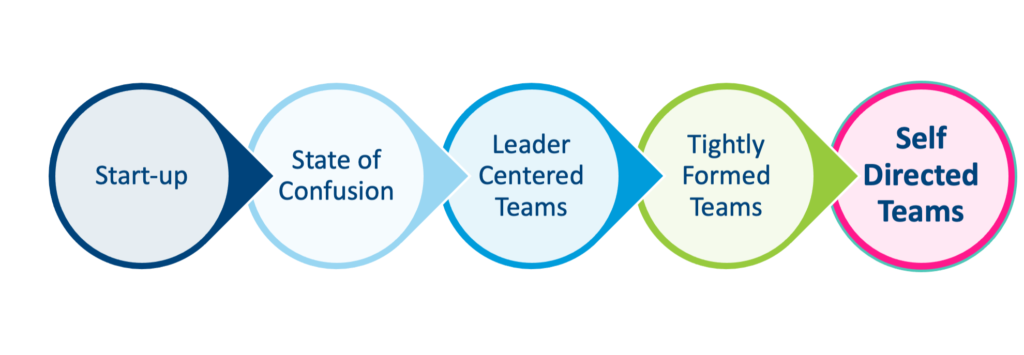Ready to revenue
cycle differently?
That starts with Currance.

Currance High Performance Work Teams build on the insight that a world-class revenue cycle requires more than using high-end technologies and doing a few things well. It requires an organizational structure that intrinsically and continuously improves. This involves integrating individuals ranging from billers and collectors to reimbursement specialists into autonomous, cross-functional teams where work, knowledge and information can flow freely—uninhibited by departmental barriers or cubicle walls.
The Currance process for developing High Performance Work Teams progresses through five distinct and measurable phases as it provides the tools, leadership, and transactional support needed to succeed in managing revenue cycle complexity:

![]()
Phase 1 – Start Up
The first step is academic. You are in your head a lot, training new muscles with a whole new approach to managing the revenue cycle. For some the hardest part is learning to delegate work to software, so they can free time for more productive tasks.
![]() Phase 2 – State of Confusion
Phase 2 – State of Confusion
In the next phase teams cut their teeth on administrative tasks and a new approach to communication, then see it evolve as the new way hits the old way and we push through that with metrics management and more technical training. Data-driven insights and workflow automation help teams break through the old pattern to take the next step to “high performance.”
![]() Phase 3 – Leader-Centered Teams
Phase 3 – Leader-Centered Teams
In the third phase team members start getting excited about the leadership potential exploding across the teams as they adopt new communication and management skills powered by analytics and tools, standardizing with KPIs and measurement so the guideposts are clear. This starts to unlock potential for even more advanced technical and leadership skills from the individual contributor to the VP level. We also see retention improve and promotions/development of managers and supervisors go much more quickly.
![]() Phase 4 – Tightly Formed Teams
Phase 4 – Tightly Formed Teams
In the fourth phase the revenue cycle teams start to work more broadly across the administrative team, supporting other departments and suppliers to improve performance and processes. Data-driven insights, workflow automation, and process optimization across the team frees up time and energy to optimize even further.
![]() Phase 5 – Self Directed Teams
Phase 5 – Self Directed Teams
The fifth phase completes the transition to self-directed teams. The revenue cycle team now manages inter-department and external relationships, and contributes to broader business issues and the overall accounting processes of the organization. Most promising of all is the team’s ability to support and improve the customer experience.
We hope you found these insights into the 5 phases of High Performance Work Teams useful. To learn more about how Currance builds these teams in your organization, contact us at sales@currance.com.
—-
About Currance
Using patented tools, a unique approach to measuring yield, operational playbooks and highly trained flexible workforce solutions, Currance helps healthcare organizations and revenue cycle leaders sustain performance improvement. Integrating Currance technology with your existing systems and empowering your teams helps find solutions that can increase earned revenue 2%-9%, accelerate payment of earned revenue and lower costs to collect.